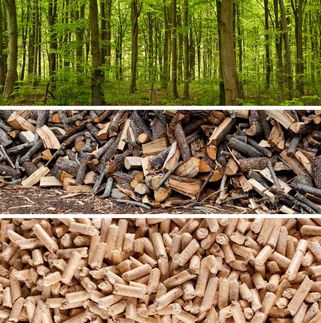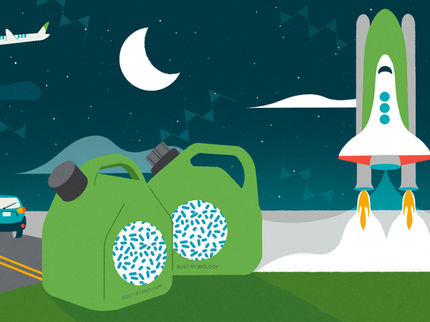More to biofuel production than yield
When it comes to biofuels, corn leads the all-important category of biomass yield. However, focusing solely on yield comes at a high price.
In the current issue of the Proceedings for the National Academy of Sciences, Michigan State University researchers show that looking at the big picture allows other biofuel crops, such as native perennial grasses, to score higher as viable alternatives.
"We believe our findings have major implications for bioenergy research and policy," said Doug Landis, MSU entomologist and one of the paper's lead authors. "Biomass yield is obviously a key goal, but it appears to come at the expense of many other environmental benefits that society may desire from rural landscapes."
Landis and a team of researchers from the Great Lakes Bioenergy Research Center compared three potential biofuel crops: corn, switchgrass, and mixes of native prairie grasses and flowering plants. They measured the diversity of plants, pest and beneficial insects, birds and microbes that consume methane, a greenhouse gas that contributes to climate change. Methane consumption, pest suppression, pollination and bird populations were higher in perennial grasslands.
In addition, the team found that the grass crops' ability to harbor such increased biodiversity is strongly linked to the fields' location relative to other habitats. For example, pest suppression, which is already higher in perennial grass crops, increased by an additional 30 percent when fields were located near other perennial grass habitats. This suggests that in order to enhance pest suppression and other critical ecosystem services, coordinated land use should play a key role in agricultural policy and planning, Landis said.
"With supportive policies, we envision the ability to design agricultural landscapes to maximize multiple benefits," he said.
However, rising corn and other commodity prices tempt farmers to till and plant as much of their available land as possible. This includes farming marginal lands that produce lower yields as well as converting acreage set aside for the Conservation Reserve Program, grasslands and wetlands.
"Yes, corn prices are currently attractive to farmers, but with the exception of biomass yield, all other services were greater in the perennial grass crops," Landis said. "If high commodity prices continue to drive conversion of these marginal lands to annual crop production, it will reduce the flexibility we have in the future to promote other critical services like pollination, pest suppression and reduction of greenhouse gasses."
Most read news
Other news from the department science
These products might interest you

BRC - Berghof Reactor Controller by Berghof
BRC - complete package for data acquisition, storage and control of all process parameters
Touch controllers are easy to use and provide quick access to all important functions

Berghof Reaktortechnologie - Hoch- und Niederdruckreaktoren, Druckbehälter und metallfreie Reaktoren by Berghof
Safe high- and low-pressure systems for aggressive media
Corrosion-resistant reactors with PTFE lining - individually configurable

Get the chemical industry in your inbox
By submitting this form you agree that LUMITOS AG will send you the newsletter(s) selected above by email. Your data will not be passed on to third parties. Your data will be stored and processed in accordance with our data protection regulations. LUMITOS may contact you by email for the purpose of advertising or market and opinion surveys. You can revoke your consent at any time without giving reasons to LUMITOS AG, Ernst-Augustin-Str. 2, 12489 Berlin, Germany or by e-mail at revoke@lumitos.com with effect for the future. In addition, each email contains a link to unsubscribe from the corresponding newsletter.



























































